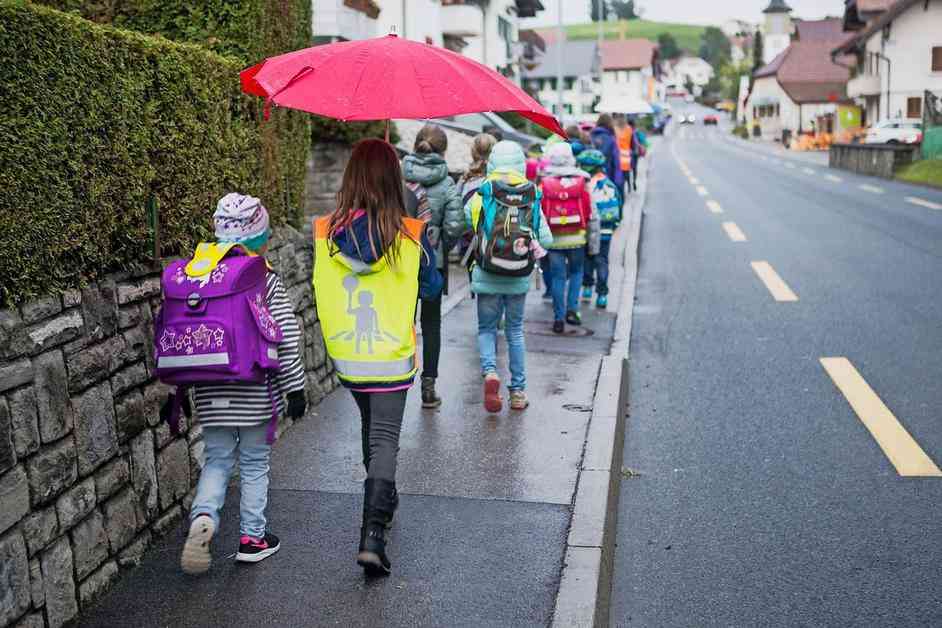Young people in Fribourg are being encouraged to prioritize walking to school this Friday, September 20, in celebration of International Walk to School Day. Various activities will take place in 9 municipalities including Fribourg and Bulle.
Last year, the 91 active Pedibus lines in the canton of Fribourg made an average of 9 trips per week, covering a total distance of 4.1 km. This amount of walking corresponds to half of the recommended daily physical activity for children, according to the Department of Health and Social Affairs.
The initiative to promote walking to school not only benefits the physical health of children but also contributes to their mental well-being. Additionally, it plays a crucial role in shaping a sustainable living environment for everyone.
Subheadings:
1. Emphasizing the Importance of Walking to School
2. Impact on Children’s Health
3. Building a Sustainable Community
Emphasizing the Importance of Walking to School
The upcoming International Walk to School Day serves as a reminder of the significance of choosing active transportation methods, such as walking, for school commutes. By encouraging young people to walk to school, the event aims to promote a healthier lifestyle and instill positive habits from a young age.
In Fribourg, various stakeholders, including individuals, parent councils, and teachers, are organizing activities in different municipalities to support this initiative. These efforts are complemented by the 91 active Pedibus lines in the canton, which have been instrumental in promoting walking as a mode of transport for students.
Impact on Children’s Health
The data from the Pedibus lines in Fribourg highlights the positive impact of walking to school on children’s health. With an average of 9 trips per week covering a distance of 4.1 km, students are already halfway towards meeting their daily physical activity recommendations. This not only improves their physical fitness but also contributes to better overall well-being.
Walking to school has been linked to various health benefits, including improved cardiovascular health, enhanced mental clarity, and reduced stress levels. By encouraging children to incorporate walking into their daily routine, we are setting them on a path towards a healthier future.
Building a Sustainable Community
Beyond the individual health benefits, promoting walking to school plays a vital role in creating a sustainable community. By reducing reliance on motorized transportation, we can lower carbon emissions, alleviate traffic congestion, and create safer streets for pedestrians and cyclists.
The International Walk to School Day serves as a reminder that choosing active modes of transportation not only benefits the individual but also contributes to the collective well-being of the community. By prioritizing walking to school, we are not only investing in the health of our children but also in the sustainability of our environment.

